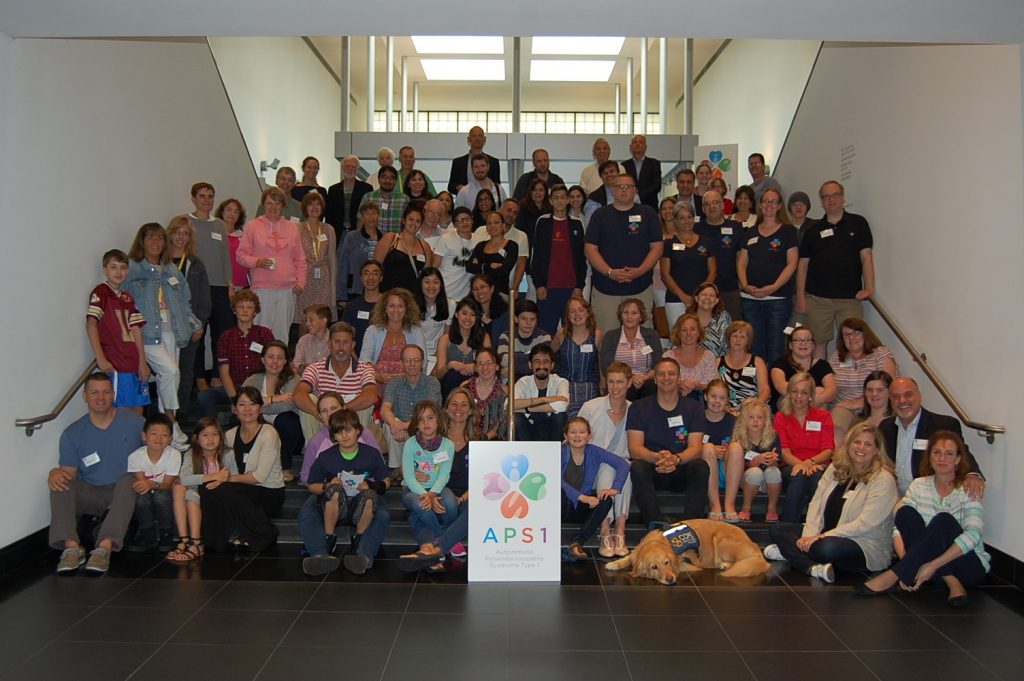Sometimes fate has a way of playing a part in our lives. Dave Seyfert was studying to be an English teacher when, during his last year of college, a bell choir came to his college to perform. The choir comprised of children with Down Syndrome and Dave was immediately taken with their performance. His interest in special education began that day. He completed a master’s degree in special education and was certified to teach children with visual impairments, and a few years later earned a second master’s degree at Boston College in orientation and mobility. While earning this degree, Dave lived, worked, and took classes at Perkins School for the Blind in Boston.
Today, Dave’s an orientation and mobility specialist who works with blind and low-vision children in schools and communities throughout Long Island. He teaches daily living skills including advanced travel training. Pre-pandemic he’d take children into New York City for trips to Kennedy Airport, the Bronx Zoo, and the Met Cloisters Museum. Once training is complete, the children may have 200 hours of subway travel, for instance, under their belt.
“I’ve taught children with visual impairments for almost 40 years,” says Dave. “I’ve worked closely with ophthalmologists and optometrists and taught many students throughout their public-school careers so they can live more independently.”
For someone without vision issues himself, Dave knows more about the effects of vision loss on daily living than most people.
In 2006, Dave’s son was diagnosed with autoimmune polyglandular syndrome type 1 (APS-1), a rare disorder characterized by several autoimmune diseases. It’s a “Sjogren’s-like” syndrome, producing the dry eyes and dry mouth that Sjogren’s patients experience. Between 80 percent and 99 percent of people with APS Type 1 have visual impairment and/or photophobia. (source: (https://rarediseases.info.nih.gov/diseases/8466/autoimmune-polyglandular-syndrome-type-1). His son also developed immune-mediated keratitis (IMMK), a corneal condition where the immune system attacks corneal tissue.
His visual acuities diminished, he developed photophobia (an intolerance to light), and he experienced extreme eye discomfort, with cold, dry, windy days being most challenging to withstand. To combat the discomfort and photophobia, Dave’s son took to staying inside. On the most difficult days he required a humidifier running constantly and lubricating eye drops nearby for continual relief.
Learning about APS-1
APS type 1, also known as APECED in Europe, is rare, affecting 1 in 2 million people, mostly children, and it is not well known. Dave and his wife, Sherri, co-founded the APS-Type 1 Foundation with the Talarico family to fund research into the underlying cause of vision problems, to educate patients and doctors about the disorder, and to create awareness of the disease. The collective knowledge of the APS-1 Foundation community yielded immediate benefits.
“Within one month of our son’s Sjogren’s diagnosis, one of our Board members recommended BostonSight,” says Dave.
“Her daughter had PROSE devices and she recommended we get a consultation. From the get-go, we knew BostonSight was here to help us. The doctors knew exactly what our son was experiencing. They were so patient, so professional. I loved that they wanted to get it right.”
The results of PROSE Treatment
Dave’s son received PROSE devices at age 16. With his devices, his photophobia diminished, and he was able to go outside in any weather condition. Additionally, he regained his depth perception thanks to his PROSE devices.
“In short, he became untethered!” says Dave.
The family had been considered limbal stem cell transplantation prior to PROSE treatment, which is a surgical treatment to restore corneal epithelial cells. These cells aid in maintaining a stable tear film and are critical in corneal healing. But the benefit to PROSE devices is that a patient can have 12-15 hours of continuous tear bathing per day, without surgery. This continuous hydration lubricates the cornea and promotes healing.
As with any treatment, patient compliance is one of the biggest barriers to success. PROSE device application and removal is a learned process. Today, Dave’s son is an expert at applying and removing his PROSE devices.
“He can insert his lenses in 15 seconds while riding as a passenger in a moving car,” Dave says.
Dave’s son is now a college student studying studio art, where his classes can top 3 hours at a time.
Ophthalmologists and corneal specialists often don’t know about PROSE treatment, and BostonSight is working to change that. Thanks to people like Dave, more and more patients and practitioners are learning about PROSE.
“BostonSight has preserved our son’s vision. Our corneal specialist calls BostonSight ‘eye-savers’. We call them a game-changer. I don’t know where my son would be without BostonSight. From our experience, APS Type 1 patients with Sjogren’s-like symptoms would benefit from PROSE devices. I encourage patients to reach out to their vision specialist about the many benefits of PROSE devices or to contact BostonSight directly.”
Learn more about the APS-1 Foundation at https://apstype1.org/
